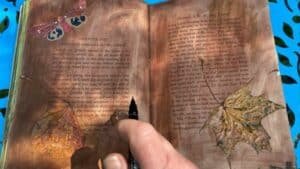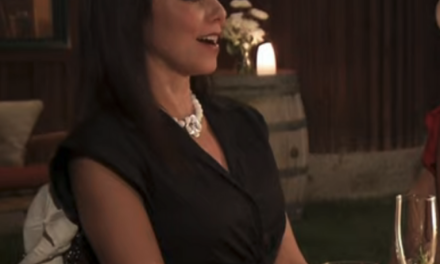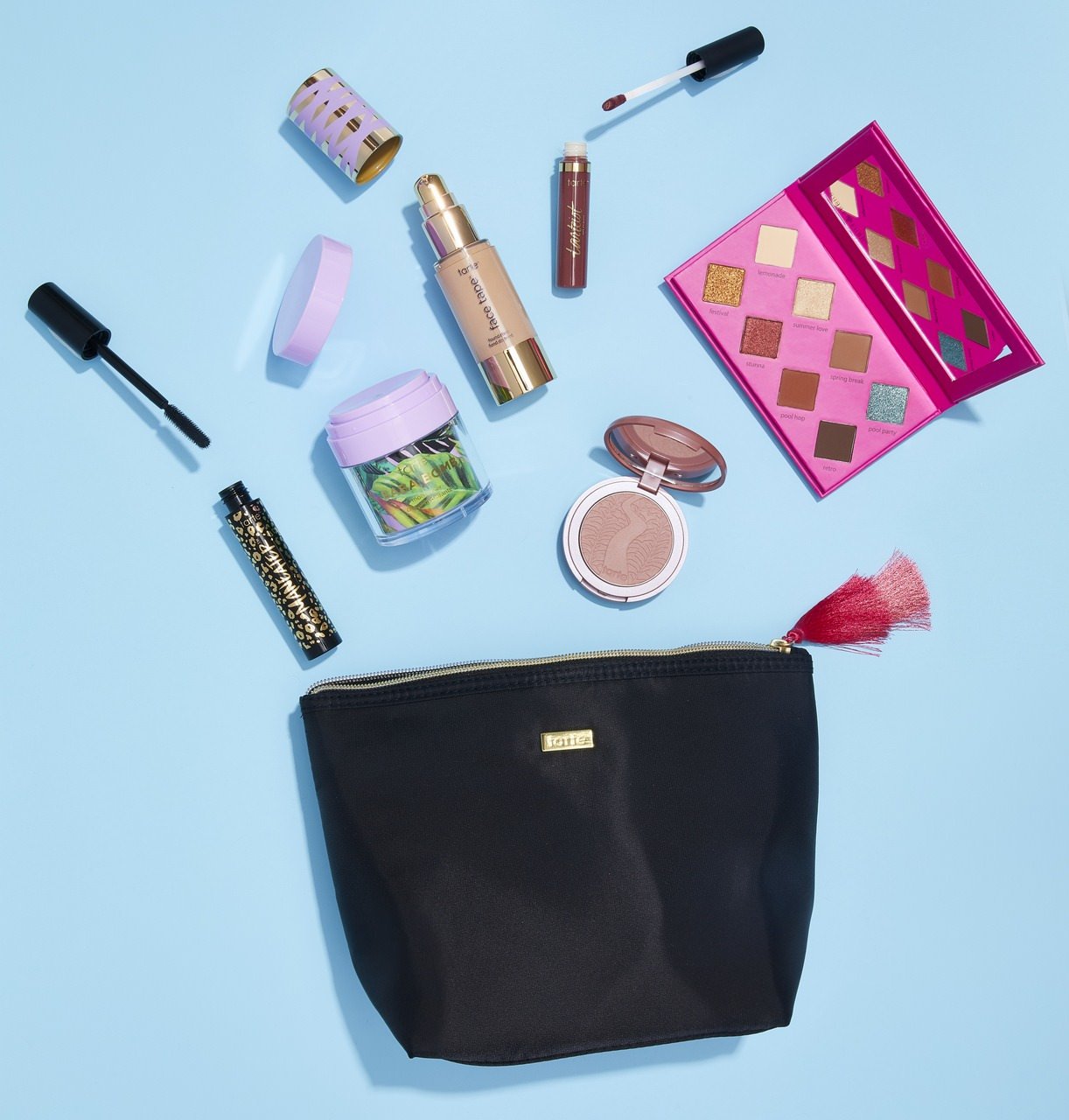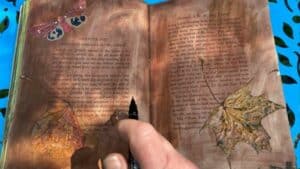
Do you keep a journal? People journal for many reasons: to organise themselves, to process ideas and reflect upon their life, to keep a record of travels and activities, or to enhance their wellbeing.
A creative journal isn’t like a regular journal. You don’t need to work on it every day (although you can, and I do); it doesn’t need to be neat and tidy, or organised – it’s a playspace. A playground for your imagination.
A fascinating place to explore, collect ideas, take risks, to record your sparks of creativity and try out new techniques. A chance to make and keep space for yourself among the clamour of everyday life’s demands and duties.
Creative journaling is self-love; you are giving yourself permission to be a creator; to answer the call of your artistic spirit, and join the swirl of dancers who give themselves up to the creative flow of the universe.
Sometimes, we want to do something creative, but we don’t quite know what it is we want to do. We feel frustrated and blocked, and disempowered. Grab a notebook (don’t overthink it; use the good notebook you were saving for… something, somewhen…) and try these ideas to ignite your creative spark, to help it grow and to nurture its everlasting, indistinguishable flame!
Collect Textures
Do you remember when, as a child, you explored everything by touching it? Many creatives never lose that urge. We want to stroke and explore things with our hands – and galleries and museums can sometimes be a trial in this respect!
For this activity, I’m calling you to give in to the urge.
Collect textures wherever you go. Take photos; make wax crayon rubbings, write notes about how the textures felt under your hand. On walks, collect natural objects with gorgeous textures, like waxy leaves or silken petals. Add them to a spread in your journal, writing about your observations. Immerse yourself in the wonder of texture!
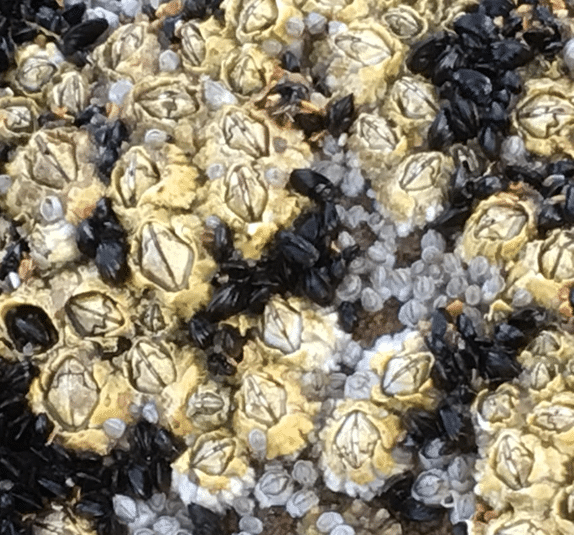
See Shapes
When you wander around town, go to the market, run errands or keep appointments, do you notice things around you? Do you rush from one place to another, head down, desperate to do something more interesting, or do you enjoy the journey?
We spend a lot of our time as human ‘doings’ rather than human ‘beings’. As you go about your daily chores, take time to notice shapes and patterns. Record them as photos, sketches or voice notes on your phone. Or take your journal with you (they are portable, you know!) and record your thoughts on the spot.
These shapes and patterns can spark ideas to use in your arts and crafts. Those railings by the bank? They could give you an idea for weaving. That brick pattern? It could become blocks on an art quilt. You get the idea!

Colours
Colour is the essence of how we express our creativity as humans: the clothes we choose, the way we decorate our homes, the food we cook; it’s everything. What colours and tones do you gravitate towards? Is it earthy tones? Coastal colours? Woodland hues? Or you may love vivid, acid colours.
Think about the way colour affects your mood. Make it a habit to take photos on your phone of colours that appeal. Don’t think about the way the photo looks or is framed – just concentrate on recording the colours. Back at home, record the colours in your journal. Print out the photos and stick them in; try to colour match by mixing watercolours to reproduce the shade.
Think about the way the colour is created. You could also make swatches of your print outs and add them to your journal. This can help you to choose colours and combinations that spark joy in you, so you can wear and decorate with them, and use the combinations in your artwork whether that is painting, embroidery, quilting or felting.

Where Do You Go to, My Lovely?
Have you ever smelled something and whooshed back through a sensory time-tunnel to another place and time? If I smell tart, juicy blackberries cooking, I’m transported back to helping my dad make jam in a kitchen hundreds of miles and five decades ago.
What smells resonate with you? Where – and when – do they take you? Jot down your ideas in your creative journal. I like to use transparent post-it notes so the images are still visible through the words. These descriptions will limber up your language skills and could spark a piece of descriptive writing or a poem.

Wonderful Watercolours
How long has it been since you played with a paintbox? Not tried to paint a flower, or a landscape, or any other *thing* – but just played? Mixing shades of the same colour, and creating a gradient that fades from intense to barely-there, or from dark to light is a wonderful creative exercise that will help you to lose yourself in the process of painting.
You could also play with complementary colours and mixtures. Painting like this in your journal also creates a gorgeous background for whatever you choose, whether it’s musings about your current project, or a technique you’d like to try. Give yourself permission to play!
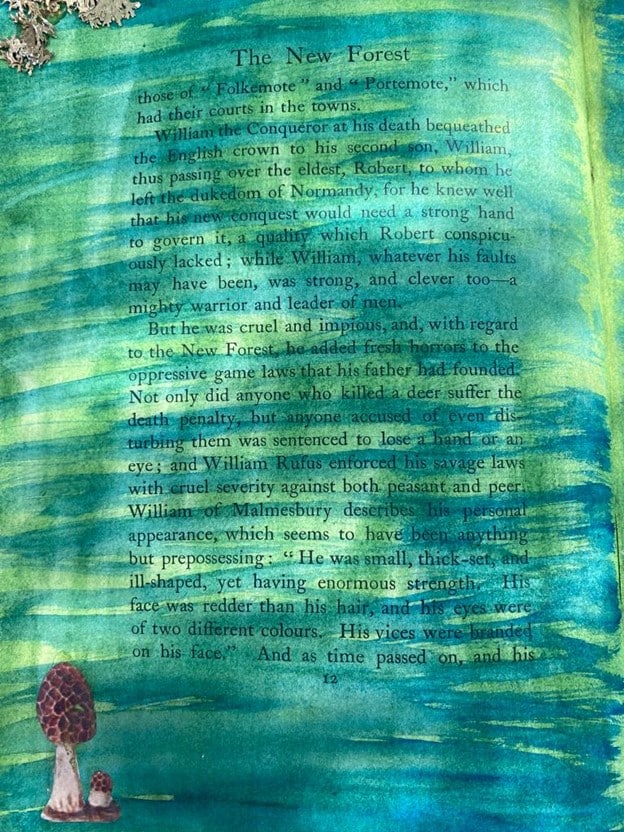
Collage with Scraps
A great way to fire up creative thinking is to use collage and ephemera to create journal pages. As you tear images from glossy magazines and cut images from prints and paste them into your journal, you relax and return to the simple joy of creativity you felt in childhood, before you developed a fierce inner critic who told you art was never quite good enough…
Creating layers from images and words torn from advertising copy and articles, you take the fear out of creation. Nothing can be ‘wrong’ when there is no ‘right’ way to do things. Go with the flow; use anything that interests you. This exercise can help you to break through any creative blocks you are having as a result of perfectionism.

Repurpose an Old Book
For journaling of any kind, it can be fun to repurpose an old book instead of using a new notebook. Many damaged old books with torn pages and broken spines end up in landfills, which seems a sad end for once-beautiful objects.
When I found this book at a flea market, its pages were loose and the spine was missing. Perhaps I empathised a little too much with her battered beauty that day, but I scooped her up and with tender care made her cherished once more.
I used scraps of felt and crystal beads to strengthen her spine, reattached pages with bookbinding tape and painted pages with gesso. Gesso works as a primer and dries quickly. It makes an ideal surface for painting and writing upon, and stops book pages from buckling. Repurposing damaged books in this way creates a unique journal and embraces the green reuse and recycle ethos – a win-win situation!
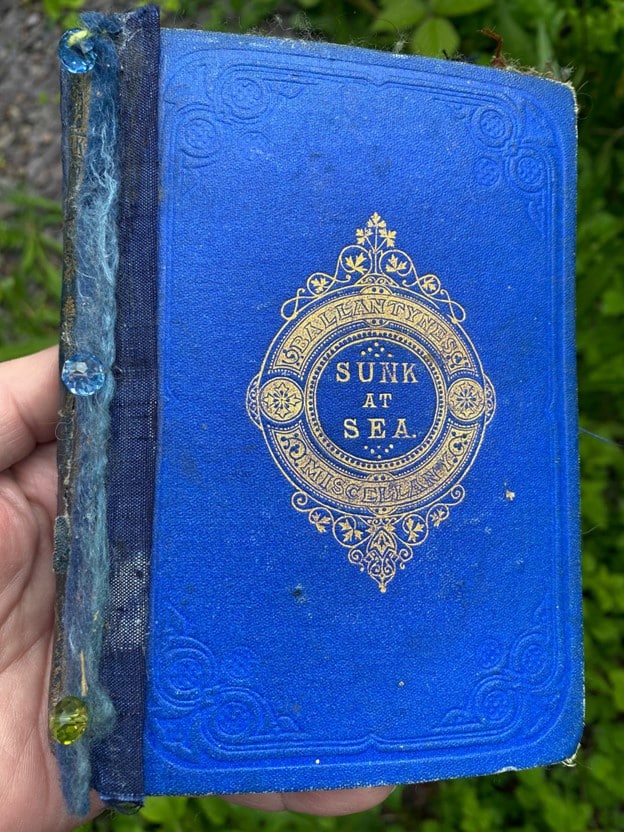
Fabric Journal
Thinking outside of the box – if you enjoy working with fabric, why not make a creative scroll journal? You don’t have to be a sewing maven to enjoy this; I have only used running stitch and back stitch here. I stitch these fabric scrolls using scraps from my stash. I often dye pieces of old sheeting and tablecloths with botanical dyes and sew pieces together in a long strip.
You can print photographs and your writing onto printable fabric and add them to the stitched journal. This example is wound round a vintage bobbin from a textile mill, but you could use a lovely stick picked up from a walk in the woods, or a piece of driftwood. These scrolls also make gorgeous memory keepers as gifts for special birthdays or anniversaries.
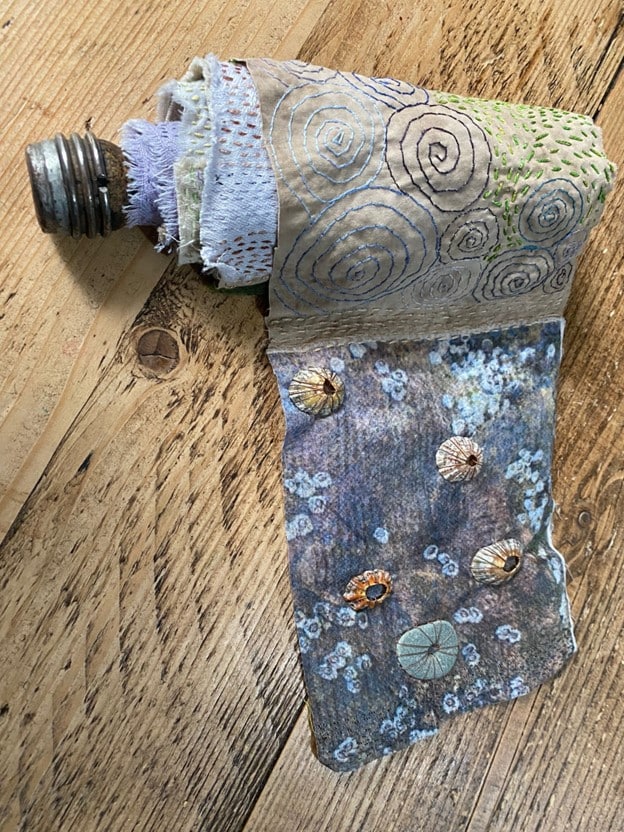
Foraged Treasures
When you are out walking, or in the garden, collect beautiful things that catch your eye, with a view to adding them to your journal. Pressed leaves, sealed with mod podge to keep their colour; fragments of seaweed from the shore, butterfly wings from fallen beauties – if you are anything like me, you probably come home from every walk with a treasure or two.
Adding these to your journal makes it beautiful; the process of gathering encourages you to look at the world with wonder, finding beauty in the smallest of things.
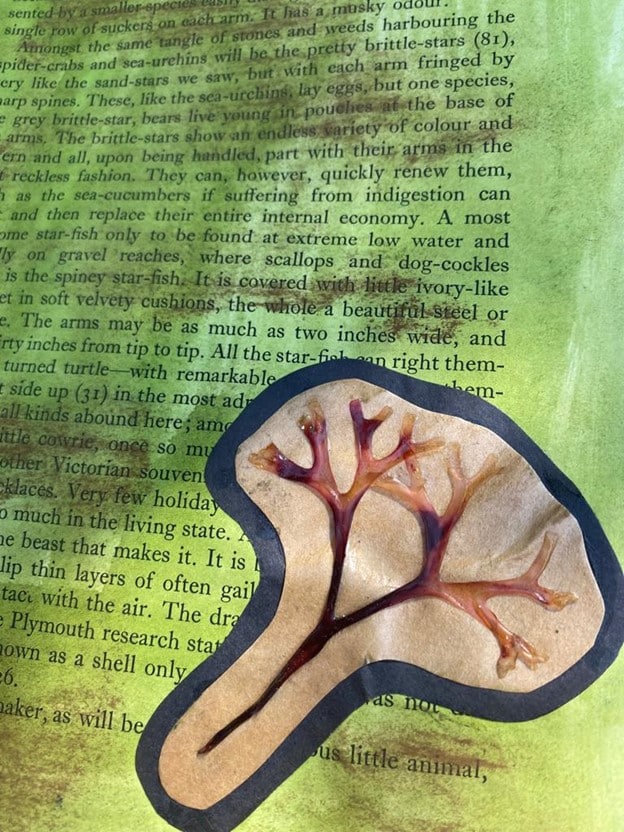
Light and Shadow
Develop your artistic eye by looking for the contrast of light and shadow. This might be a dark alleyway leading to a bright main street in the town, or dappled light flickering through leaves onto grass below.
Record the light with photos, sketches, plein air painting or voice notes – whatever takes your fancy. Then add these collected shards of light to your journal, to reflect upon later and add to your own art, whichever form that takes.
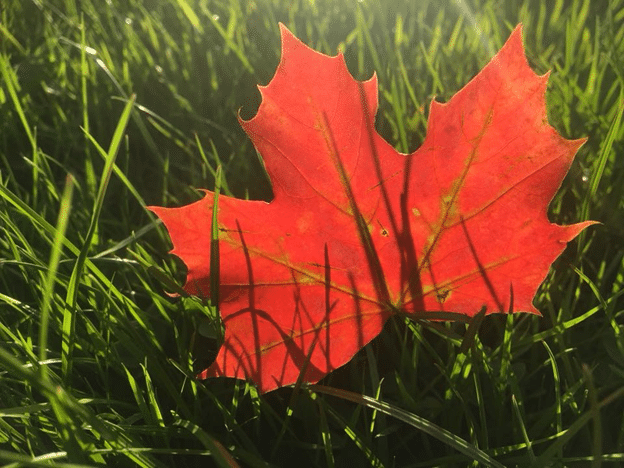
Golden Moments
Use your journal to create a visual record of golden moments. These are the memories we cherish, that forge precious links to our past. Who were you, once? Have you forgotten any of the people you have been, who live in layers inside you, like nesting matryoshka dolls?
Print off old photographs of yourself on paper, and use paint, pastels or crayons to embellish the pictures. As you work, try to remember the moment the photo was taken, if you can, and write the fragments of your memories on the image.
You don’t need to worry about writing a perfect narrative – that way lies writer’s block – just write wisps of memory as they drift through your mind. This exercise helps you to reconnect with all of the people who you have been.
This is a wonderfully immersive exercise that brings your senses to life, and that can help you to write memoir, poetry, or short stories. A series of these memories, recorded in this way, can also create a cherished family heirloom giving a window into our personal world for the generations who come after us.
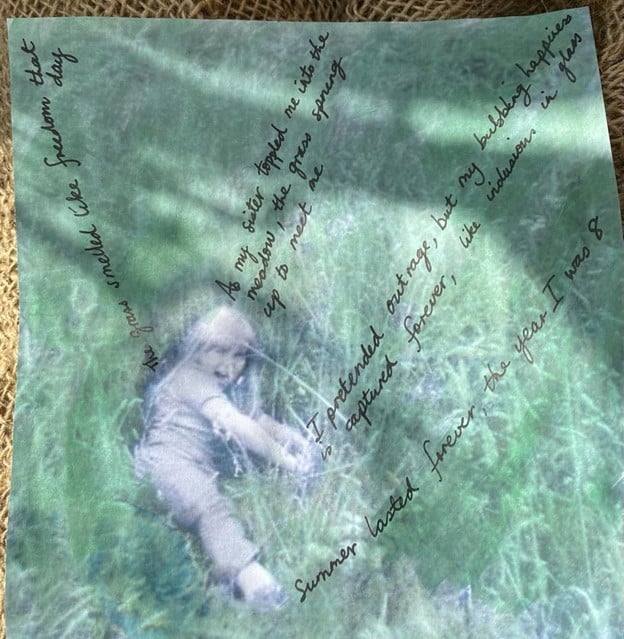
To explore these ideas for releasing your creative self, set up a creation station where you can leave supplies ready to go and your journal open so that you are always ready to dive in.
Go with the flow and trust the process; there are many ways here to unlock your creativity and avoid the dreaded choice paralysis we sometimes feel when we have the desire to do something creative, but we aren’t sure what we want to do. It’s time to give yourself permission to play!
If you try these ideas, we’d love to hear about your experiences and see your photos – so please share them here in the comments section and on our Facebook page.
Let’s Have a Conversation:
What gets in the way of your artistic ambitions? Do you ever feel creatively ‘blocked’? What do you do to reconnect with your inner artist?

